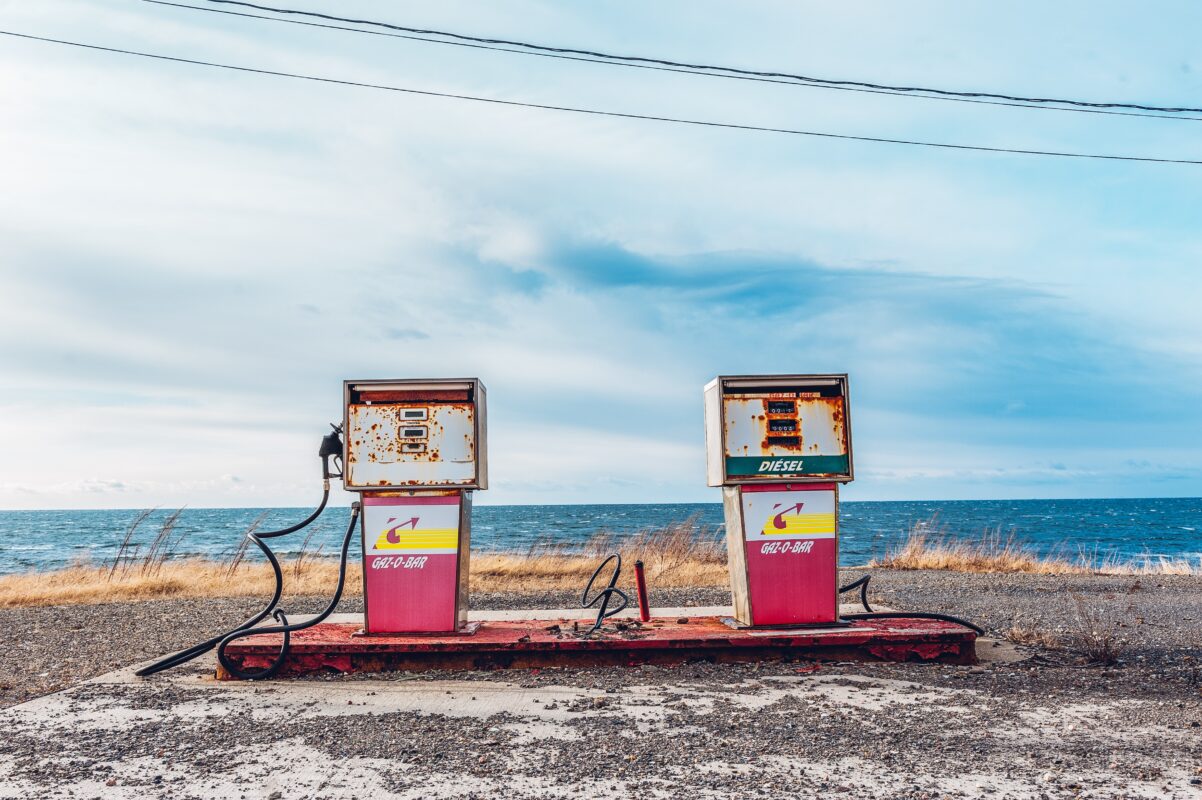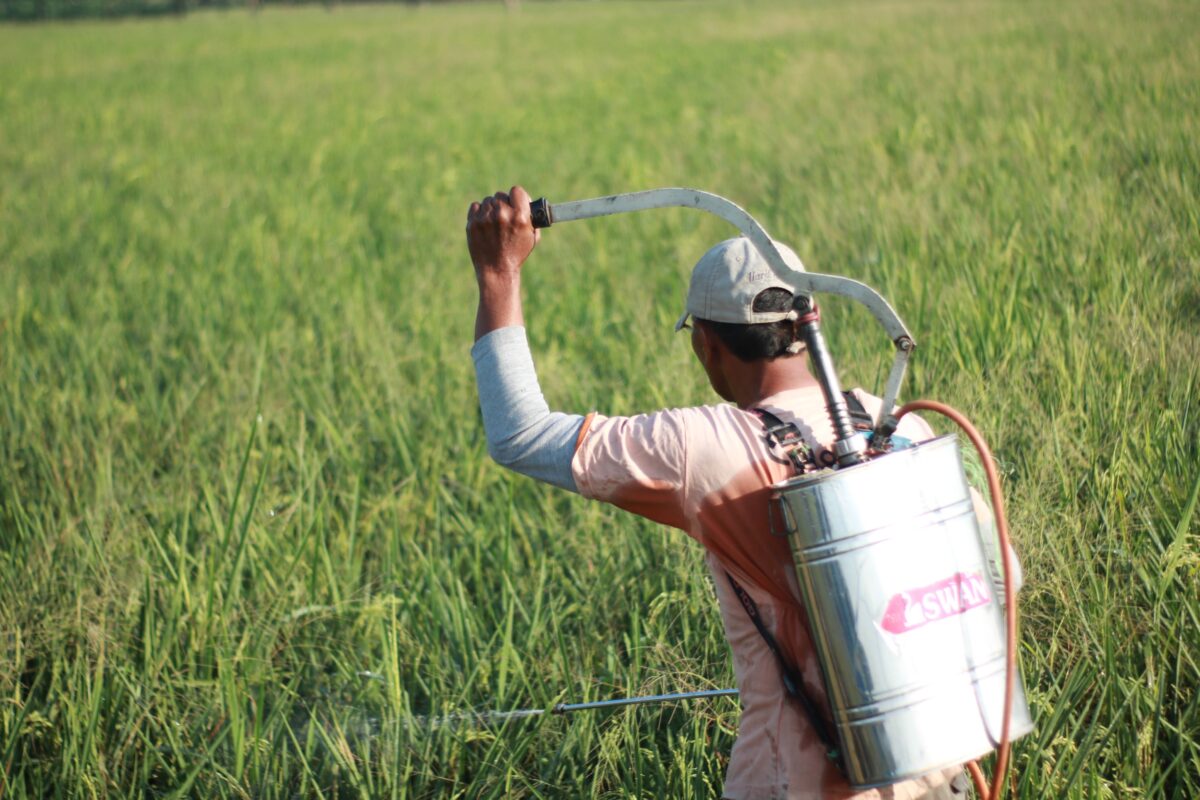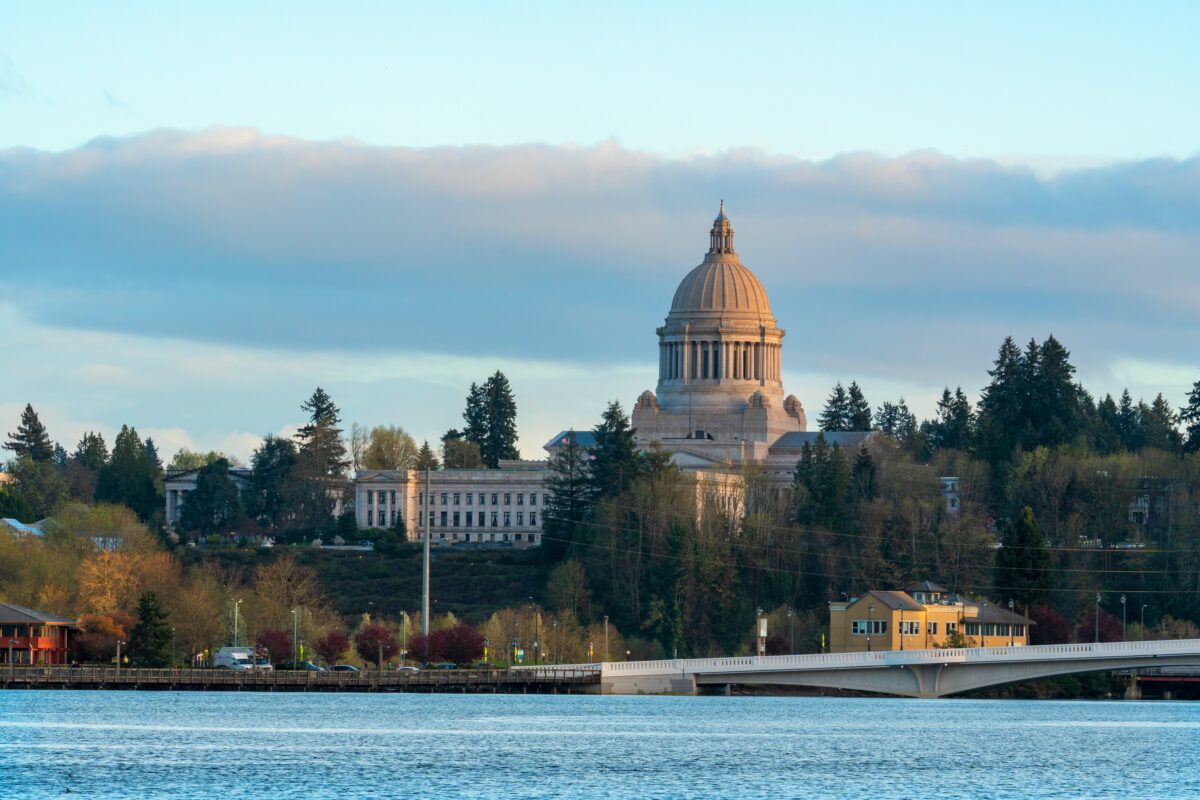The Washington State Primary election was held on August 1. Washington is an all vote-by-mail state and uses a Top-Two Primary system in which the top two vote getters advance to the General Election regardless of political party. There are no legislative or statewide executive races on the 2023 ballot. All of the 2023 election activity relates to local government positions and measures.

State Revenue Forecast Council Update
As reported in the July 17 Economic & Revenue Forecast Council Update, major General Fund-State revenue collections for the June 11 to July 10 collection period came in 4.3% ($101.1 million) higher than forecasted. Revenue Act collections were up 5.7% ($102.1 million) over the forecast and all other tracked collections were $1.0 million (0.2%) lower than forecasted.
Ag Exempt Fuels Update
This year, a fuel surcharge attached to the state’s Climate Commitment Act (CCA) went into effect. The CCA was designed to cut greenhouse emissions through a carbon capturing plan.
One key reason it passed through the legislature is that it exempts farms from the fee. Most fuel distributors are passing the charge on to farmers. Months after farmers sounded the alarm, the surcharge is still costing most farmers up to 68 cents per gallon. Several dairy farmers say it is costing them between $4k-$5k a week in CCA fees. That’s 30 cents more than the surcharge was in May.
Agricultural fuel users that are exempt from the CCA fees put blame on the Washington state Department of Ecology for a flawed system they say provides no way for suppliers to track and report exempt fuels, so they simply pass the cost on to customers. The law also has no teeth and no fines for suppliers who are still charging the fee to comply with the law. Ecology was supposed to do rulemaking in early 2022 but never created rules to regulate the agriculture exemption. Farmers are paying an additional $76 million in fees on fuel this year. The WA Dairy Federation is publishing the names of fuel distributors who are not adding the surcharge. There are 15 distributors that are withholding the CCA fee. The list is expected to grow.
Meanwhile, the Department of Ecology is holding meetings of a workgroup made up of Ag Industry and Environmental stakeholders. The group has yet to find a solution that is agreeable to all the stakeholders including the Governor’s office. At the same time, the Governor has increased his threats against the oil industry in our state by accusing them of potential price gouging. Gov. Jay Inslee who is in the last 18 months of his final term as Governor, held a press conference the first week of August, announcing legislation in 2024 that would require the oil refineries doing business in Washington to disclose financials that would show how prices are determined. Many from the business community agree that regulations like that may not be legal but it makes for really good political theatre among environmental supporters of Inslee.
Joint Legislative Audit Review Committee Recommends HST Tax Preference
Washington levies a tax on hazardous substances, including petroleum products, certain pesticides, and certain chemicals. Agricultural crop protection products (pesticides) are chemicals used to prevent or control predators, diseases, weeds, or other pests. This tax preference provides an exemption from the hazardous substance tax (HST) for pesticides that are stored in or transported through Washington prior to sale out of state. Eligible pesticides may not be manufactured, packaged, sold, or used in Washington. The exemption went into effect in 2016 and is scheduled to expire on January 1, 2026.
Total hazardous substance tax revenue has increased, but likely not due to the preference. When creating the tax preference, the Legislature stated that the state’s hazardous substance tax was driving businesses to store pesticides out of state, threatening Washington’s position as an agricultural distribution hub for the Pacific Northwest, and leading to job and revenue losses. The Legislature stated that the intent of this preference was to incentivize agricultural pesticide storage in Washington. It also stated it would extend the preference if a review found an increase in average HST revenue from all products subject to the tax.
Legislative Auditor’s Recommendation: Continue and modify
The Legislature should continue and modify the preference. The preference improves industry competitiveness by providing tax relief to Washington businesses that store or transport pesticides sold out of state. The Legislature should consider new metrics to evaluate the preference in light of 2019 changes to hazardous substance tax or recategorize the preference as one intended to provide tax relief.

WA Gas Prices Hold Steady, Second Highest in Country
After more than a month as the state with the highest gasoline prices in the country, the average cost for a gallon of regular unleaded in Washington slipped to number 2 last week below California. The change is not because prices in Washington are falling. They’ve stayed around the same level over the last month, despite spikes in most other states, including California. The average price for a gallon of regular gas in Washington was $4.99. In California it was $5.04. Both states are still well above the national average of $3.82.
Washington’s gas costs have become a hotly debated topic in recent weeks as critics of the state’s cap-and-trade program blame the climate initiative for causing prices to steadily increase since it went into effect in January. Even though prices in Washington have risen since January, they remain about the same as a year ago. Prices in Washington last year around this time were about a cent less than they are today, averaging around $4.97 for a gallon.
The cap-and-trade program requires the state’s largest polluters, such as refineries, to meet a greenhouse gas emissions cap. If they can’t meet it, they must purchase allowances from the state. Critics say the cost of those allowances has trickled down into the price of a gallon of gas. The first two allowance auctions have already brought the state $857 million to spend on programs to reduce climate change’s effects.
Workers’ Compensation Benefits to Increase by 2 Percent
Many injured workers collecting benefits under Washington’s workers’ compensation system will see an increase of 2 percent in their time-loss and pension payments from the Washington State Department of Labor & Industries (L&I) this month. The increase applies to workers hurt on or before July 1, 2022. Workers injured after that date will not see their first adjustment until after July 1, 2024. The payments are increasing because the state’s average wage, as calculated by the Washington State Employment Security Department this June, also increased by 2 percent. L&I recalculates benefits each year to reflect the annual changes in the state’s average annual wage.
The resulting cost of living adjustment (COLA) for 2023 increases the maximum monthly benefit to $8,416.70 or 120 percent of the state’s average monthly wage.The increase also applies to pension benefits paid to family members of those who died because of a work-related incident or disease.
Washington/Oregon I-5 Bridge Funding
Last year, Washington state lawmakers committed $1 billion toward constructing a new Interstate 5 bridge over the Columbia River. Now, Oregon’s Legislature has made a matching contribution. If Oregon hadn’t stepped up, the project would have stalled again. Officials from both states say the bridge needs to be replaced before it comes down in an earthquake. Project officials say the bridge connecting Oregon and Washington is the only spot on I-5 from Mexico to Canada where cars have to stop for boat traffic, which can create gnarly freeway backups. It is particularly significant that both states have authorized tolling on the bridge, which has been a source of controversy in the past. Officials still must seek federal grants to complete the project, which is expected to cost between $5 billion and $7.5 billion. In the meantime, the project is going through an environmental review process before it can proceed to the design phase.

Farmers to be Reimbursed for Compost Expenses in New Program
The Washington State Department of Agriculture (WSDA) is launching the Compost Reimbursement Program to encourage on-farm compost use. Approximately $1 million will be distributed annually on a first-come, first-served basis. All commercial Washington farmers – including those in agriculture, silviculture, aquaculture – are eligible for the program. Participants must agree to conduct soil sampling before and for several years following the compost application. Additionally, the compost must be purchased from a business with a solid waste handling permit. Producers must first apply to and be approved for the program, ensuring that their business and compost source are eligible.
Once approved, program participants must sign a grant agreement contract and conduct pre-application soil sampling before applying the compost. After expenses are incurred, applicants will submit a reimbursement application for their total expenses. The expenses are then calculated, and the applicant is reimbursed for 50 percent of their expenses, not to exceed $10,000 total per business. WSDA anticipates accepting applications beginning in September. But producers can sign up now to be notified once the application period opens. Applications will continue to be accepted until the allotted funds are spent each fiscal year, which runs from July through June.
The Washington State Legislature established the Compost Reimbursement Program earlier this year when they passed and funded Revised Code of Washington 15.04.420. WSDA has been setting up the infrastructure since then and will begin accepting applications once the infrastructure is in place to collect, process, and reimburse the grant applications.
EPA Vulnerable Species Pilot Project
EPA recently proposed its vulnerable species pilot project. Comments were due to the agency Sunday, August 6. To allegedly help EPA become compliant with its Endangered Species Act (ESA) legal obligations, the pilot project identifies 27 species throughout the U.S. that EPA alleges are uniquely vulnerable to pesticide exposures and aims to put in place very stringent upfront restrictions on nearly all pesticide use to protect these species and their habitat. To accomplish this, the agency would establish Pesticide Use Limitation Areas (PULA) that generally align with significant areas of the species’ ranges and habitat.
EPA is assuming these species and their habitats are likely to be jeopardized/adversely modified prior to conducting any risk assessment or effects determination. EPA plans to extend this pilot to other species and other areas over the next couple of years, so if this proposal does not immediately impact pesticide users geographically, it might impact users soon.
To be clear, these restrictions and application requirements are quite severe. There are some exceptions and nuances, but generally, in most of these PULA areas a pesticide user would be entirely prohibited from applying pesticides unless you do the following:
Coordinate with your local Fish and Wildlife Service (FWS) office three months ahead of any pesticide applications;

• Notably, for some species EPA only requires you to consult with FWS if you make applications around species habitat in the PULA, not throughout the entire PULA.
• However, as detailed in the comments, we think implementation will still result in a comprehensive coordination requirement for all PULAs despite the agency’s attempted distinction.
• For all but two species, you must adopt four conservation practices that will reduce pesticide runoff/erosion risks (no till, cover crops, filter strips, 40% application rate reduction, etc.).
• For many of the species (though not all), there are spray drift reduction requirements as well.
Farming vs Agritourism in Skagit County
Skagit County Commissioners held a meeting the end of July to hear arguments from both sides including farmers that are part of the niche Ag-tourism economy and farmers that are not. A dispute over how farmland is used in Skagit County could put an end to agritourism. Some of the oldest and largest farming operations are pushing to preserve land for growing crops only.
It’s a matter of simple economics: Large farmers can sell enough to wholesalers to make a profit; small growers have farmers markets. But those in the middle must diversify using weddings, parties, and family picking events to make ends meet. Farmers across America are diversifying just like this in the name of sustainability. But in Skagit County some farmers are drawing a line at being asked to avoid things like putting down fertilizer because it would smell bad to visitors.
A code change is being pushed by the oldest and largest farming operations that restrict ag-land to farming, eliminating those special events and requiring special permits for U-Pick produce days. Agriculture, including livestock and dairy is a $300M a year industry in Skagit County.
Drought Declaration Grant Funding Available
In a presentation to the Joint Legislative Committee on Water Supply During Drought, representatives from the Department of Ecology went over what led to the recent drought declaration and what the corresponding $3 million in grant funding means for communities. The Drought Coordinator for the Department of Ecology’s Water Resources Division told the committee that there are several variables that the department looks at. One is that they look at water supply seasonal forecasts. What is the volume of runoff expected, especially for that April through September period, which in the state is when water supply challenges are likely to arise.
These funds are available to a variety of local government organization but require a 50% match from local sources. Projects must provide benefits and start during the declared drought period, but they do not have to be completed during the drought declaration. The lone exception to the 50% match are public water systems in disadvantaged communities, which can request a waiver if eligible. Drought conditions were declared by the Department of Ecology on July 24.
Snake River Dams Mediation
U.S. Agriculture Secretary Tom Vilsack was in Pullman on Aug. 1 and commented to media outlets that farmers are well-represented in the mediation taking place on the lower Snake River dams. There’s an inter-agency process in which the Department of Agriculture is making sure that those making decisions which could impact agriculture are taking agriculture’s interests and concerns under consideration. Federal mediation on the fate of the dams is slated to end Aug. 31. The talks, led by the White House Council on Environmental Quality, are part of a stay in the long-running lawsuit over the dams and their impact on fish populations.
Environmental groups and tribes are calling for removal of the dams to benefit salmon recovery. Agricultural stakeholders support salmon recovery but say removing the dams is not a complete solution, and cite negative economic, environmental and energy impacts if they are taken out. Agricultural stakeholders have also criticized the federal mediation process, expressing concern that dam breaching is a pre-determined outcome. Pacific Northwest agricultural groups asked Vilsack to step in on the federal mediation in March. Conservation and fishing groups have given 60-day notice of their intent to sue the U.S. Army Corps of Engineers, seeking removal of the Snake River dams.
The federal team, with other participants in mediation in long-standing Columbia River litigation, including Columbia Riverkeeper, are developing that strategy for meeting the commitment to restore salmon and other native fish populations to healthy and abundant levels. The Corps and agricultural stakeholders have long argued that only Congress can authorize removal of the dams.
The groups in their letter cite the 1973 Supreme Court case Tennessee Valley Authority vs. Hill, which found that congressional authorizations and appropriations for federal dams do not create exceptions to the Endangered Species Act or prevent injunctions prohibiting such dams.
Calendar
• 2023 Elections: August 1 (Primary) and November 7 (General)
• Senate Assembly Days: November 30 and December 1
• House Assembly Days: December 4 and 5
• 2024 Legislative Session begins: January 8


